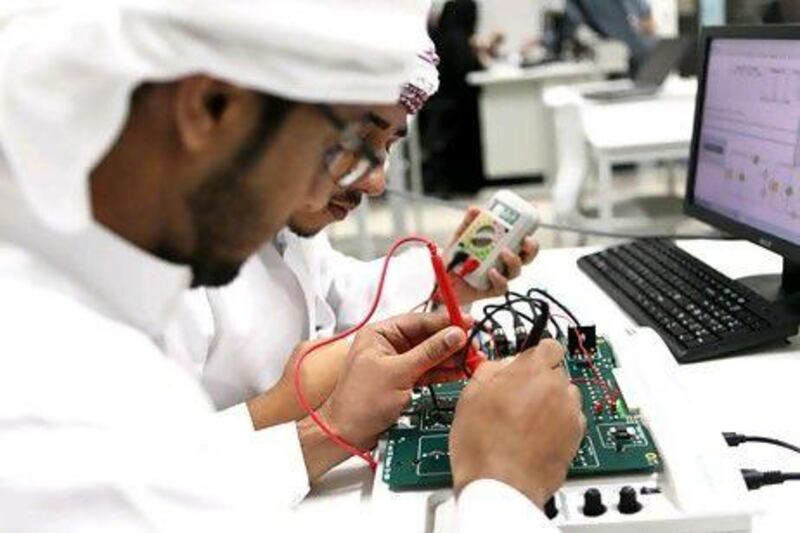The Arab world is experiencing dramatic changes where the political repercussions have eclipsed economic ones that are by no means less significant.
Because of this, the dramatic changes over the past year and a half have failed to begin addressing critically needed economic development.
Unemployment and, more specifically, youth unemployment have not received the attention they deserve from policymakers.
There is almost a sense of helplessnesson how to tackle it. As the global financial crisis has affected much of the Arab world, leading to a rise in unemployment, governments with the financial capacity to respond have increased public spending.
This has addressedthe unemployment challenge in the short-term butat the expense of the long-term need for real job creation and an overall increase in productivity.
The region is blessed with a youth bulge that potentially puts the whole region on a path for growth for decades to come. An effective response to the youth unemployment challenge is to view the Arab youth bulge as an opportunity rather than a risk to be mitigated. Yet efforts to harness this force have been few.
They require a collaborative effort between the public and private sectors with the aim of generating wealth rather than spending it.
The development of a venture capital (VC) ecosystem in the Arab world is a key component in the much-awaited economic spring. Countries around the world have harnessed the talent of their youth and entrepreneurial spirit to revamp their economies.
Lessons of how South East Asia turned its demographic youthproblem into a demographic gift are abundant.
There are other case studies for Arab governments to study, including government responses in Britain, Estonia, Ireland, Singapore and other countries thathave had varying degrees of success.
They all strove to build ecosystems where entrepreneurship could flourish, often with active government assistance.
Lessons from countries where VC has played a part in their economic transformation show three ingredients are needed for success.
First is the ecosystemto sustain a VC culture, including a physical and legal infrastructure attuned to the specific needs of a VC hub.
Second, the availability of a talent pool of scientists and engineers.
And finally, market access to a large pool of potential consumers is required as well as viable exit strategies for investors.
Few of the countries that have become VC hubs had the headstart some Arabian Gulf countries have. The UAE, in particular, has a world-class infrastructure that puts the country ahead of many others in its ability to condition itself to sustain a VC ecosystem.
It already hosts global high-tech giants. The Khalifa Fund in Abu Dhabi is one example of the Government's commitment to encourage local entrepreneurship.
Kuwait's government has also recognised the potential benefit of VC and created, as far back as 2003, the National Technology Enterprise Company (Ntec). Ntec is set to become a regional investor in high-tech companies across the region.
What is needed now is a concerted effort that would fuel a technological revolution on the scale of Britain's industrial revolution. Gulf countries are blessed with the ability to lead an Arab economic miracle.
Besides the soft and hard infrastructure, there are hundreds of millions of highly-educated scientists and engineers yearning for the opportunity to innovate and create. Many of these potential entrepreneurs are withina two-hour flight of the UAE.
A government-backed initiative can make the UAE the region's VC hub, the Middle East's version of Silicon Valley.
Not only will this be good for the region, it will also attract investment from around the world. Positioning the UAE as the region's VC hub will not only be transformative for the jobs market, it will also significantly contribute to the economic diversification away from oil.
Ghanem Nuseibeh is the founder of Cornerstone Global Associates and a senior visiting fellow at King's College London; Eli Epstein is a businessman based in New York with long-standing business interests in the Gulf.





